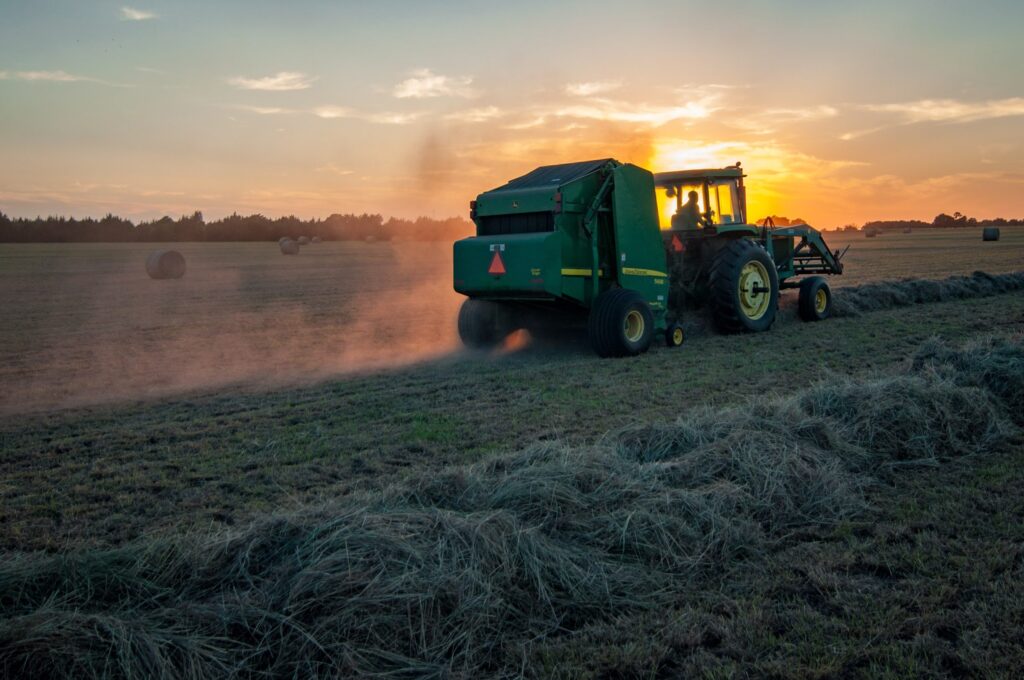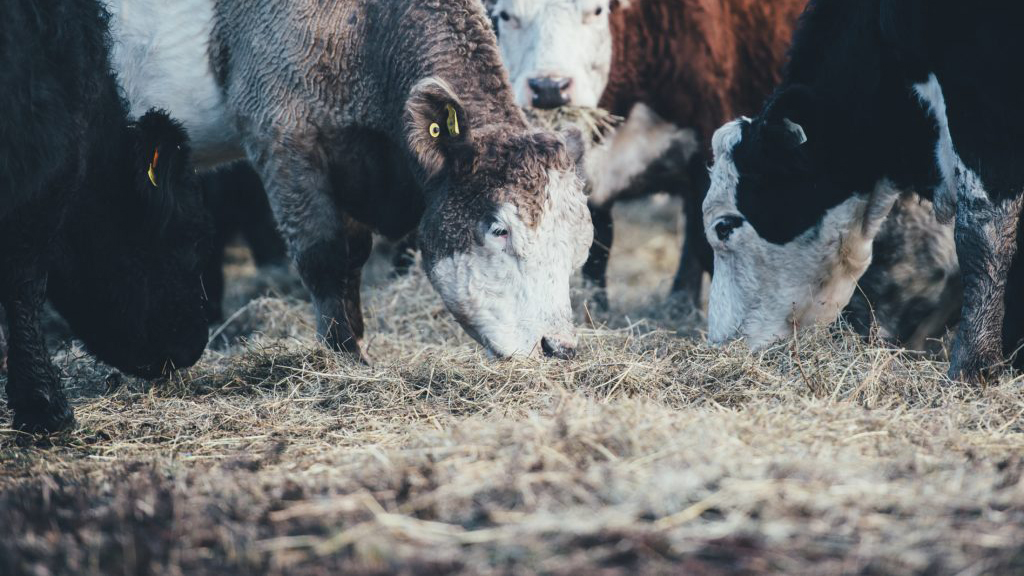What drives a farmer’s decisions? From thoughts on the best fertilizers, feed, and seeds to use, to beliefs about climate change and land use, the views farmers have influence their actions and inform their product purchases. For businesses to succeed in the agricultural space, they must tap into this knowledge through market research.
Focus groups help unveil the “why” behind farmers’ attitudes, motivations, and behaviors, from which researchers gather meaningful insights to inform business decisions. Qualitative research provides a wealth of information not accessible from other techniques, such as survey research. But deciding to embark on qualitative research with ag experts can be a difficult task. Most sample providers and recruitment firms focus on general consumers or business professionals and lack the necessary expertise to reach farmers. Representing only 1.3% of the US population, farmers are a low-incidence specialty audience. It takes industry knowledge to source this type of market research participant. Also, gen pop providers lack profiling specificity, or offer only broad ag industry targeting. This lack of access to the right pool of potential respondents has a negative impact on costs and data quality. It costs more because without access to the right potential audience it takes longer to source participants. It lowers quality because, with compressed timelines on projects, profiling requirements can be lessened in order to meet a quota on time. But a research firm with in-depth knowledge of the agriculture space helps researchers reach niche audiences and connect with the farming community.
With proper collaboration between players within the agriculture market and an experienced research team with access to the right community, superior products and services can be developed as an answer to current farmer needs and anticipated future trends. When ready to embark on a farmer focus group, here are insights to expect from these efforts:
Awareness of Behavior
A farmer focus group allows for a thorough examination of farming practices, as farmers detail how, when, and where they use ag resources. This in-person exploration of behavior is often preferable to a purely quantitative study (that relies exclusively on self-reporting) because, like all humans, farmers can be unaware of the behaviors they take almost without thinking. Human behaviors can be largely unconscious decisions we make. The decisions a farmer takes in daily life are based on underlying beliefs and preferences. Focus groups allow for in-the-moment probing of statements to uncover the deeper reasoning. As opposed to completing checkboxes and scales from predetermined answer choices when taking a survey, qualitative moderators delve into circumstances and probe exact patterns of thinking that lead to behavior.
Awareness of Preferences
A farmer focus group can also provide an awareness of farming preferences. A skilled moderator can uncover truths to important questions like:
- Why does the farmer prefer product x over product y?
- Are there adjustments that can reverse or strengthen these preferences to the benefit of a brand?
- What are the particular considerations farmers use to evaluate products, methods, or technologies?
Moderators may also ask farmers to consider small changes to current products to increase their attractiveness. Details can be uncovered about what keeps them from purchasing or using current brands or products. This allows businesses to design future products and services that better match farming needs that are in alignment with their preferences.
Awareness of Concerns
Focus groups allow farmers to communicate their concerns to a sympathetic audience. With shared interests and knowledge, they are free to brainstorm and vent their frustrations and perceived threats. Within this open environment, the farmer takes center stage and feels their opinions, input and issues are valued. The nuance between what is scripted and what is unscripted within a focus group is important. While the company obtaining the research has objectives, a seasoned moderator also knows when to let participants wander off-script for the sake of uncovering a deeper truth. This serendipity can’t happen on a multiple-choice survey. But in a focus group, concerns that have bigger implications may be shared simply through casual conversation or intense debate among the participants.
Awareness of Knowledge
A farmer focus group is a great way to investigate the level of awareness on specific products or issues. Moderators can explore overall brand recognition and product knowledge with group participants. Discussions can reveal whether or not farmers understand who and what is in the market and how they can utilize each to make their work easier and more effective. Businesses can use this information to further increase market exposure or tweak marketing efforts. Moderators may also ask farmers to consider possible products and processes that could make the entire industry more efficient or even more profitable. In this way, a focus group can also tap into the expert knowledge of the hands-on farmer for better business insight.
Awareness of Attitude
Perhaps most importantly, a well-recruited and well-managed farmer focus group sheds light on why farmers act the way they do. By exploring their attitudes and beliefs through discussion and group interplay, researchers probe and eventually understand the larger attitudes that frame choices and guide big picture thinking on larger issues. These general attitudes can contextualize specific hot button issues like climate change, big seed company prices, commodity market volatility, GMOs, government subsidies, technological advances in farming equipment, large animal veterinary breakthroughs, and more. With this knowledge of broader attitudes, ag businesses can improve their products and services or better forecast a new product’s potential reception within the market.
Respondents may never be aware of the deeper motivations behind their behavior and they may not be aware of the way they created their personal preferences. They are the best source from which to learn about their concerns, depth of knowledge, and broad attitudes in the market. When qualitative research taps into this understanding this first-party insight creates greater business impact.
The success of a farmer focus group requires proper planning, proper access, proper recruiting, and experienced analysis. The right research partner provides the right framework for success. From targeting to recruitment and all logistics in between, experience within the farming community matters. The greater the specificity possible in profiling, from socio-demographic variables, land ownership, crop and livestock production, seed and pesticide usage, farm size, and more, the greater the specificity of the insights gained. Experienced partners set the stage and outline expectations for research participants. Clear expectations result in positive show rates. Research analysis and reporting are more than a “data dump”. Instead, it is the meaningful outcome of good research with actionable insights to guide better business decisions.
When it comes to agricultural market research, work with a partner who can separate the wheat from the chaff.
Download this helpful eBook, The Ag Researcher’s Almanac, for a glossary of important terms related to market research in the farming industry.
To learn more about creating a farmer focus group, contact the expert Ag Access team. As a full-service market research firm specializing in the ag industry, we have access to over 45,000 people in our agricultural insights community with additional access to over one million consumers who can be targeted by equipment ownership, operation type, occupation details, and more.
How can Ag Access help? As part of our proven process, Ag Access shapes the data into a compelling, thought-provoking story that fully addresses the primary objective. The robust data supplied will give the executive team the confidence to green light or, red light this concept. Visuals can be customized and delivered in raw format or presentation-ready. Either way, it means we deliver clarity in both the data and the meaning it conveys.
 Download
Download
The benefits of conducting market research are great. They are amplified when choosing a qualified and experienced partner. Whether you’re evaluating concepts, researching customer opinion, or looking for feedback on your service, taking the time to talk to the right audience means reducing or even eliminating threats. Measuring the customer’s responses helps optimize your recommendation and potentially augment that plan to gain more customer loyalty and new prospects. Ag Access will help you recognize and harness the best concepts and opportunities at the right time.
To gain (and sustain) actionable insight, there really is no substitute for customized market research. A study tailored to your own business questions, using a targeted audience, means all resulting data will be timely and relevant to unique business purposes. Click below to learn how our team can craft and execute a market research study that improves your products, operational strategies, and ultimately, your ROI.



